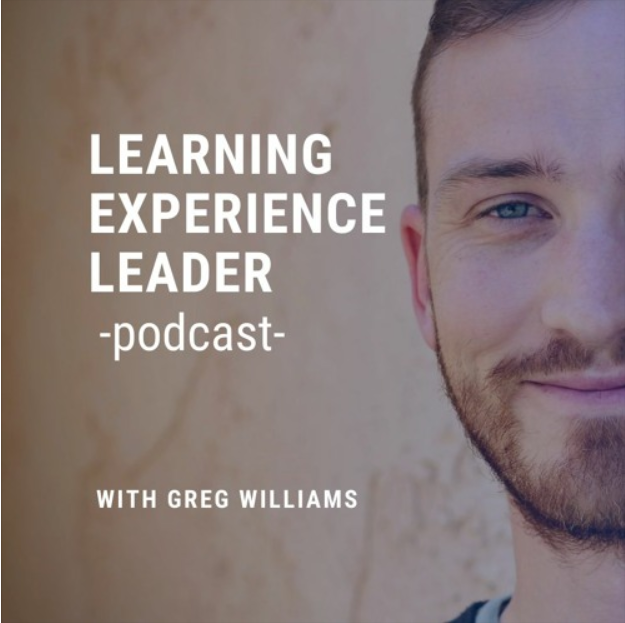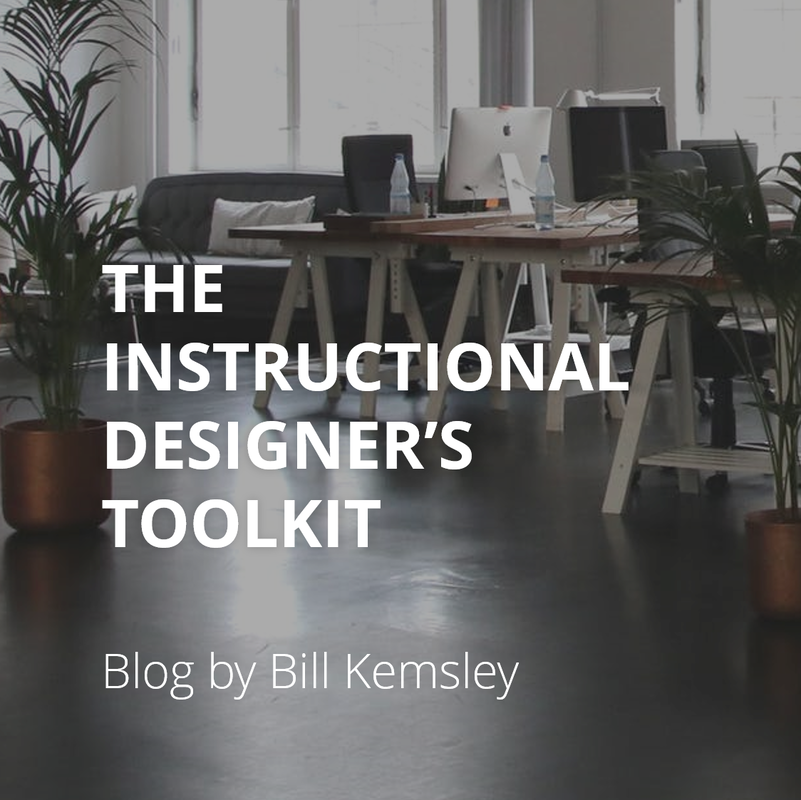|
Why did you pursue a career in the instructional design and technology field?
To make a long story short, I grew to love the field and the way instructional designers think. I like the interplay between designing with a wide, learner-centric view and then getting into the nitty-gritty details of development. I love being able to develop and use soft skills and technology/computer skills every day. I never have to shelf creativity or logical organization - they are both essential. I love being able to work with and pick the brains of subject matter experts across all domains and subjects. Mostly, I love learning and I love having a job where I have to learn something new every day and I get to help shape learning experiences that other people can enjoy. What are some of your day-to-day responsibilities in your roles? It depends on my current project. It can vary from designing and implementing live virtual soft skills training to developing asynchronous tool training. Other days I am running statistical tests on the data we collect from those trainings or creating reports of my findings from my analyses. I also work closely with a team of other learning engineers so I spend a good amount of time collaborating, reviewing, and brainstorming with them. How have you found your jobs? What advice do you have for someone trying to find a job in the instructional design and technology field? Mostly through connections with IP&T faculty and alumni. I'm pretty new to the field, so most came from connections through the university. For example, one was an internship posted on the IP&T listserv. My current position was through asking an alumni for any connections he had. In what ways did your graduate program prepare you for your career? It gave me opportunities to practice in a realistic, mentored setting on real projects. I also gained a foundational understanding of processes and theories as they should be applied in an ideal setting, which has allowed me to apply them in the workforce with more consistency. It revamped my statistical experience, which has been a differentiator for me. Finally, I was able to identify and develop areas that were/are weaknesses in my own instructional design abilities (as well as areas that are my strengths) enabling me to continue to grow in the future. Why did you pursue a career in the instructional design and technology field?
As a missionary, I developed a love for teaching and preaching, or in other words, teaching in a way that led to deliberate action. This continued when I returned home and worked at the MTC and started coaching cross country. I loved being able to discover an individual's goals and aspirations and then, help them understand the path that was required to achieve those goals and recognize how and why they needed to take those steps in the process. What are some of your day-to-day responsibilities in your roles? Varies a lot. Some days are filled with meetings where I'm working with internal experts to define competencies or create assessments for a particular job role. Other days, I work a lot with other Learning Engineers to design and develop meaningful learning experiences that drive toward those competencies. Other days, I am meeting with leadership outlining strategy for how we can structure internal learning at our company and external learning with clients and how we might commodify and deliver our instructional objects. Then still, there are days that I am buried in item analysis data trying to clean up existing assessments and develop newer, more efficient assessment tools. How have you found your jobs? What advice do you have for someone trying to find a job in the instructional design and technology field? My current job is at the company I interned with while still in the program. I found that position through a family member. However, they were not hiring at the end of my time there so I ultimately took a Job at Canopy, which I found via Glassdoor. My advice is to anyone looking for a job in the field is two-fold:
In what ways did your graduate program prepare you for your career? The more I've gotten into the work of instructional/learning design, the more I have loved it as a beautiful blend of science and art. I think the graduate program coursework helped provide that "science" component. Courses helped me understand the systematic approaches we can take to develop learning experiences, whether in understanding our target learners or project constraints, identifying appropriate assessment instruments, etc. My final project and my internship touched a bit more of that "art" or "human" side of things. Of how all this actually comes together in real, meaningful, and interesting ways. Observing different LinkedIn conversations around the topics of instructional design and learning and development, I can't help but feel like this balance of science and art is continually knocked out of whack. I see individuals emphasizing the importance of having every principle of adult learning memorized while others take instructional design to mean little more than graphical design or eLearning development. You need science and art. I think the experiences I had in the program highlighted that for me. Why did you pursue a career in the instructional design and technology field?
I was interested in the psychology of learning and designing learning experiences, so I got a degree in Instructional Psychology and Technology. Being in the program led to getting an internship in the field, which I enjoyed a lot more than I thought I would. So that's where I am now. What are some of your day-to-day responsibilities in your roles? Recently my projects have revolved mainly around creating modules geared toward helping employees and clients use our company's software. I spend a lot of time working with project sponsors and SMEs to determine the desired learner competencies for the given subject, creating a scoping document to determine assessment items that will target those competencies, working with SMEs to create the questions, then fortifying the module with supporting information, video, interactions, etc. How have you found your jobs? What advice do you have for someone trying to find a job in the instructional design and technology field? I love my job. It's an awesome company that I would never have known existed if I hadn't seen an IP&T alum's email about a summer internship at his company that he sent out through the listserv. My advice would be to GET INVOLVED. There are so many awesome people to network with, people in the program, IP&T alumni, professors, people across campus, professors' contacts. As you meet them and keep your ears open, you'll hear about some awesome opportunities. Don't worry too much if it's not what you want to end up doing forever, because ... well ... do we really know what we want to end up doing? In what ways did your graduate program prepare you for your career? Probably the biggest way that my program prepared me for my current responsibilities was in helping me learn the basics of instructional design. I knew nothing about determining learner competencies or developing expert performance models or working with SMEs before my grad program. Good grief! I'd never even heard of Storyline! So the program gave me some very basic skills that are essential in my current role. There are also a host of soft skills that I needed to learn—and am still learning—that are important to my current role, such as being able to get feedback even when I don't feel ready to share my incomplete project, or working with team members who may have very different design ideas than I do. Project management is also huge in my role. And again, I would say that the network established through the program is incredibly helpful. |
AboutLearn more about the career paths and day-to-day responsibilities of people working in the corporate sector of the IDT field! Respondents are students and alumni of the BYU IP&T program.
View by Company
|








